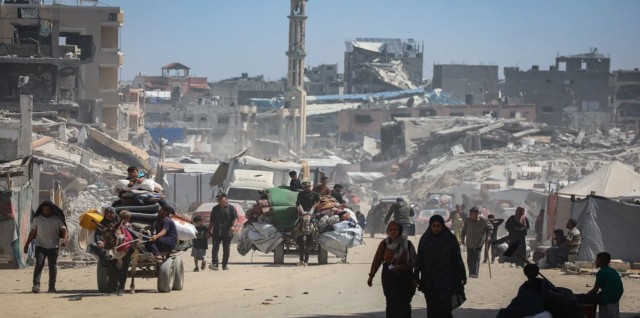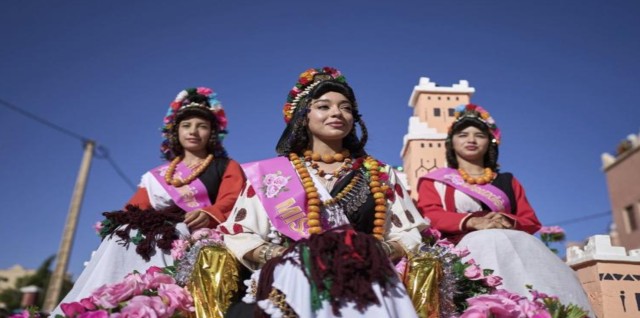
Thousands of fishermen fill a large muddy pond and cast their nets in the southern Mali town of San, Thursday, June 6, 2024, for Snake mon, a collective fishing rite that begins with animal sacrifices and offerings to the water spirits of Sanké pond. For several hundred years, people have gathered for the rite, which is on UNESCO's list of intangible cultural heritage. Heatwaves in Mali in recent years have caused the pond to start drying out. (AP Photo/Moustapha Diallo)
In the town of San, Mali, thousands of fishermen armed with cone-shaped nets eagerly gathered for the annual Sanké mon ritual. Amid cheers and chants, they rushed to the muddy Sanké pond, dropping to their knees to cast their nets. Amidst the excitement, a fisherman proudly displayed a large catch, illustrating the tradition's deep cultural significance.
For centuries, San has hosted the Sanké mon in June, a communal fishing ceremony steeped in tradition. The event commences with rituals honoring the water spirits of Sanké pond, featuring masked dancers and traditional attire. Recognized by UNESCO as intangible cultural heritage, the ritual marks the town’s foundation and heralds the rainy season.
However, climate change and recurring heat waves now imperil this venerable tradition. Mamadou Lamine Traoré, a village chief, lamented the gradual disappearance of Sanké pond due to the intensifying heat waves in Mali. Local weather observer Emmanuel Doumbia reported record temperatures, reaching a scorching 48.5 degrees Celsius this year, exacerbating the pond’s drying.
The unprecedented heat wave coincided with Ramadan, intensifying the hardship as observers fasted during sweltering conditions. The Red Cross Red Crescent Climate Center noted challenges in data collection but estimated significant heat-related fatalities this year, possibly numbering in the hundreds or thousands.
An analysis by the World Weather Attribution highlighted that the Sahel region, including Mali, has experienced more severe heat waves due to climate change. Maximum temperatures in Mali and Burkina Faso have risen by 1.5 degrees Celsius, impacting agricultural productivity and human health.
During the recent Sanké mon, participants persevered despite the oppressive heat, cooking stripped chickens and performing traditional dances adorned with cowrie shells. Yet, signs of distress were evident: a weathered national flag fluttered by the shore, symbolizing the environmental challenges facing the community.
Amadou Coulibaly, reflecting on the tradition's resilience, underscored its deep-rooted heritage and his commitment to its preservation despite mounting obstacles.
Since its UNESCO listing in 2009, there were plans to safeguard Sanké pond by deepening it to prevent siltation, as recounted by Traoré. However, these plans have languished, and the pond's deterioration now threatens not only the Sanké mon ritual but also the town's economic viability.
The impending loss of Sanké pond underscores broader implications for San's cultural identity and economic resilience. As climate impacts intensify, urgent action is needed to preserve this centuries-old tradition and ensure the sustainability of San's cultural and economic heritage.















